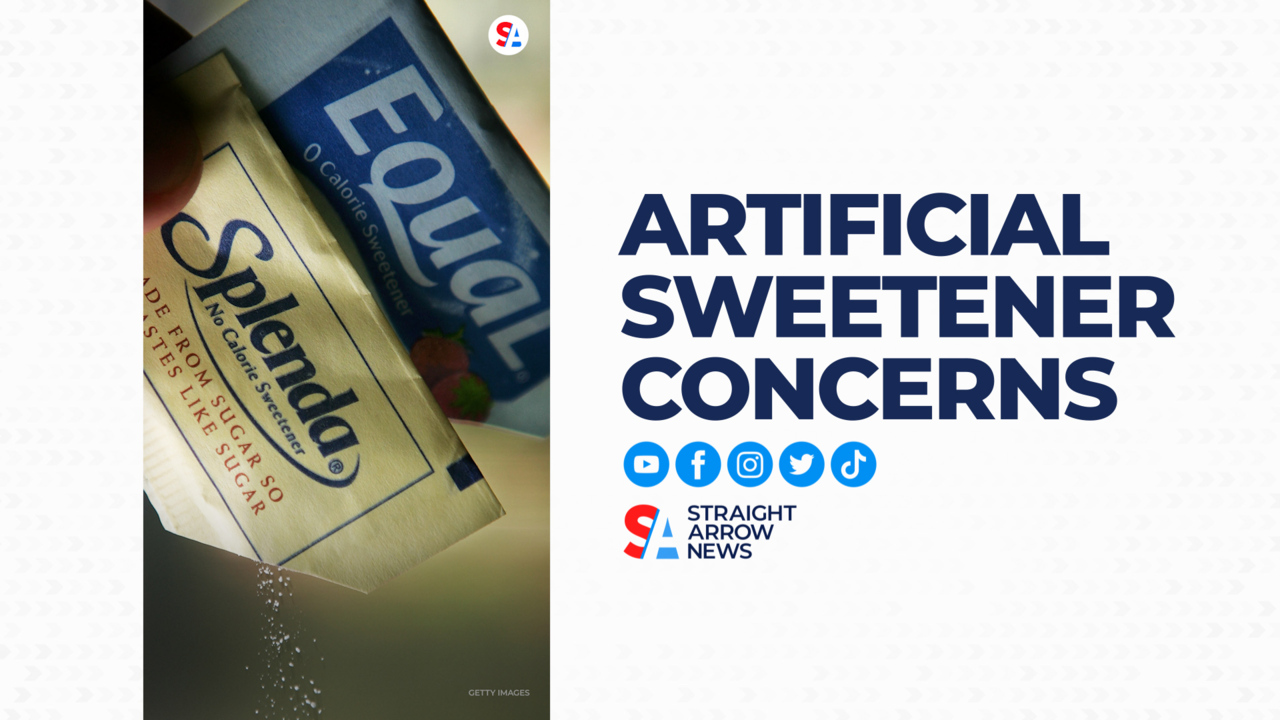
A NEW STUDY IS ADDING TO SOME RECENT EVIDENCE THAT ARTIFICIAL SWEETENERS MAY NOT BE THE HEALTHIEST ALTERNATIVE TO SUGAR
RESEARCH CARRIED OUT ON 103 THOUSAND ADULTS OVER A PERIOD OF ABOUT 10 YEARS – FOUND A LINK BETWEEN SWEETENERS LIKE ASPARTAME AND SUCRALOSE AND A 9% INCREASED RISK OF CARDIOVASCULAR DISEASE
ASPARTAME IS FOUND IN MANY DIET OR ZERO SUGAR BEVERAGES WHILE SUCRALOSE IS THE POPULAR SWEETENER BEHIND SPLENDA AND SOME COFFEE CREAMERS
BUT THIS STUDY IS JUST ONE OF MANY AND WHILE SWEETENERS HAVE COME UNDER SEVERE SCRUTINY IN RECENT YEARS – THERE IS CONFLICTING DATA:
EXPERTS SAY AMERICANS ARE EATING AND DRINKING TOO MUCH SUGAR *WE’RE TALKING TWICE THE RECOMMENDED AMOUNT ACCORDING TO THE AMERICAN HEART ASSOCIATION* MEDICAL EXPERTS ATTRIBUTE ALL SORTS OF HEALTH PROBLEMS TO HIGH SUGAR INTAKE, INCLUDING OBESITY, AND TYPE TWO DIABETES
*ASPARTAME AND SUCRALOSE ARE VIEWED AS ALTERNATIVES* AND THEY’RE FDA APPROVED. ACCORDING TO THE MAYO CLINIC BECAUSE THEY HAVE VIRTUALLY ZERO CALORIES – THEY MAY HELP CONTROL SOME OF THESE CHRONIC CONDITIONS
BUT IT’S A TRADE OFF – AND WHILE THIS RECENT STUDY PROVIDES A LITTLE MORE DATA INTO THE POTENTIAL RISKS – THE RESEARCHERS BEHIND IT SAY MORE STUDIES ARE NEEDED






